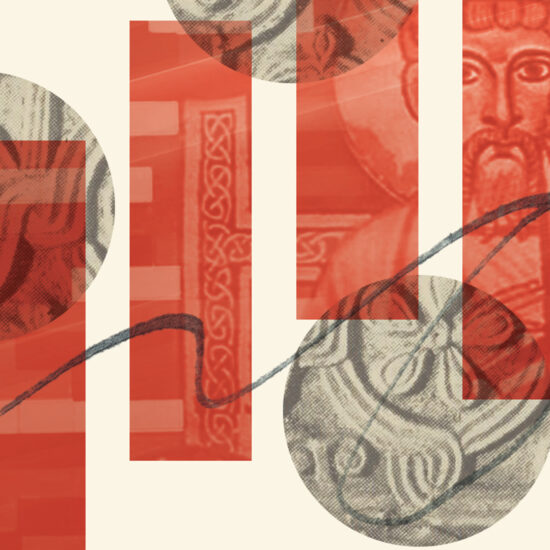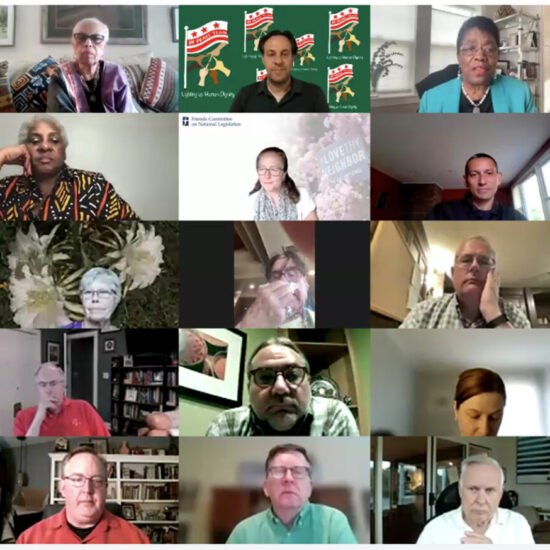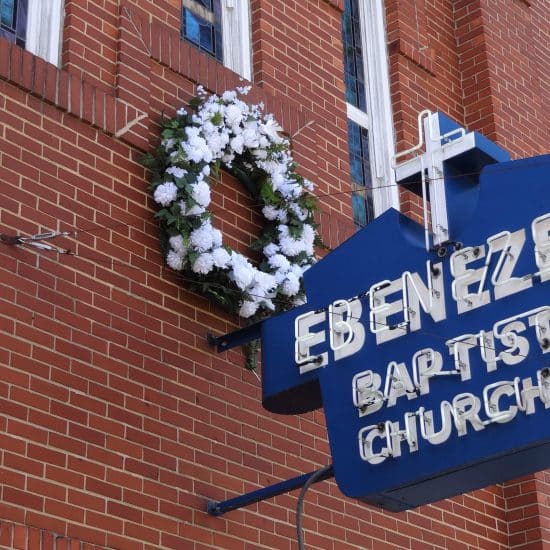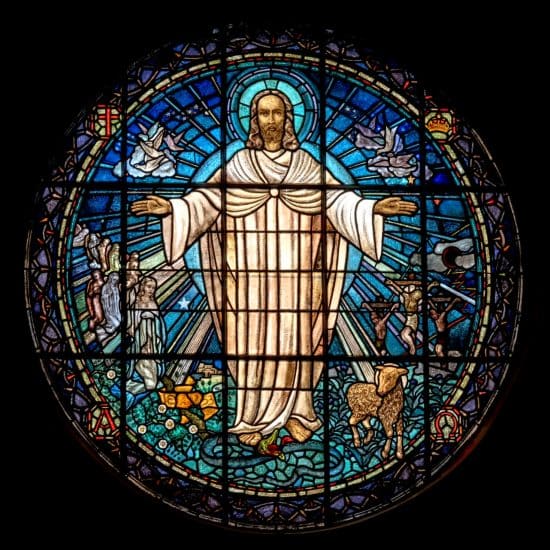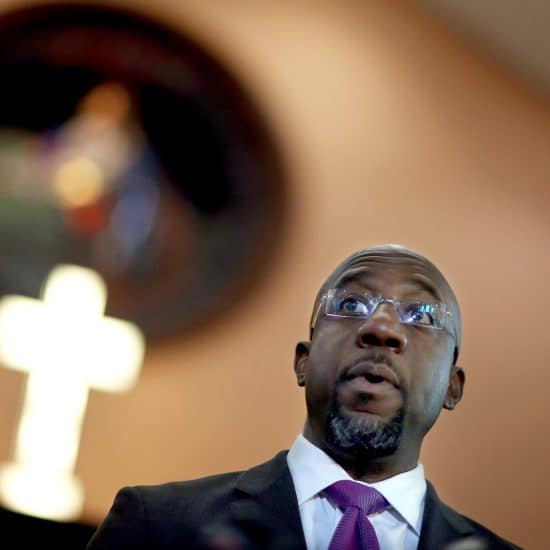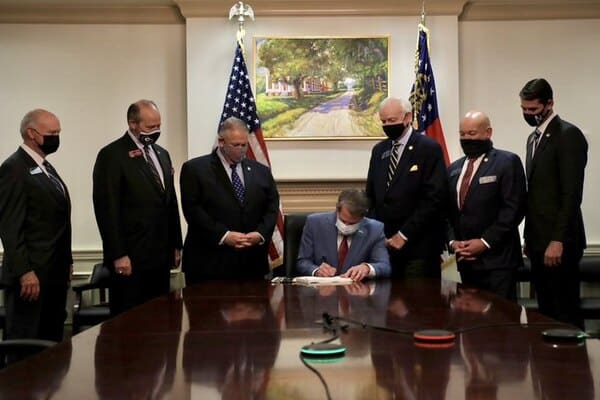
As Georgia Governor Brian Kemp signed a new law Thursday (March 25) to make it more difficult for people to exercise their right to vote, six other White men stood behind him. And a large painting hung behind them — a painting of a slave plantation of a family rich with Baptist ties.
A cloud of witnesses, but not a good cloud.
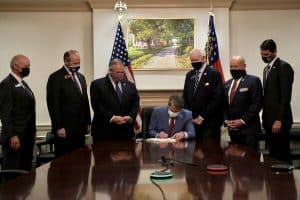
Gov. Brian Kemp signing the voter suppression bill on March 25, 2021. (Gov. Kemp’s Twitter account)
As writer Will Bunch noted, the painting is of the so-called “Callaway Plantation,” which “only thrived because of the back-breaking labor of at least 100 enslaved people and perhaps many more who were held in cruel human bondage.”
“The fitting symbolism is somehow both shocking and unsurprising. In using the antebellum image of the notorious Callaway Plantation — in a region where enslaved Black people seeking freedom were hunted with hounds — in Wilkes County, Ga., as the backdrop for signing a bill that would make it a crime to hand water to a thirsty voter waiting on Georgia’s sometimes hours-long voter lines, the GOP governor was sending a clear message about race and human rights in the American South.
And who were the Callaways? A family that produced several Baptist preachers who led churches while also enslaving some of God’s image bearers.
Like Enoch Callaway, a nephew of Job Callaway, the man credited with starting the building of the “Callaway Plantation.” The 1850 census reveals Enoch enslaved 35 people — as he also pastored a church. Several other enslaver Baptist pastors dot the family tree.
Many of the early Callaways were members of Sardis Baptist Church that started just a mile down the road from the Callaway building in the portrait. That church’s first pastor, Jesse Mercer, went on to edit the Christian Index newspaper, lead the Georgia Baptist Convention as president, and provide significant leadership to the school later named after him. Mercer also enslaved many Black persons. And his name shows up in the Callaway family, like with Jesse Mercer Callaway, a Baptist minister and Confederate soldier.
So, as seven White men gathered this week to roll back voting rights in ways that particularly target Black voters, this family’s house built from the wealth of slavery and exploitation watched. Perhaps we can even imagine some of the Callaways watching from the windows as Kemp signed the bill.
A cloud of witnesses, but not a good cloud.
I used to read that famous passage in Hebrews 12 and just see a good group of people. But at any race there are spectators cheering for different runners. There are some witnesses who aren’t in our cloud and might even be rooting against us. The question is not if we will run but how and for whom.
And understanding the stories of those who went before is critical to running the race faithfully, which is why this famous verse comes right after the chapter detailing champions of the faith.

Rep. Park Cannon (D-Atlanta) is escorted out of the Georgia Capitol by Georgia state troopers after being asked to stop knocking on a door that lead to Gov. Brian Kemp’s office on March 25, 2021. (Alyssa Pointer/Atlanta Journal-Constitution via AP)
That Kemp chose a portrait of a forced labor camp as pretty office décor shows he’s not remembering the stories about coming out of slavery in Egypt or Georgia. That Kemp only invited a few White men for the private signing ceremony — while a Black legislator was forcibly removed by the police for just knocking on the door — shows he’s not remembering the stories about the diversity of God’s people. That he signed this bill at all shows he’s not remembering the stories of Black Baptists like John Lewis, C.T. Vivian, and Martin Luther King Jr. who, as the author of Hebrews put it, “faced jeers and flogging, and even chains and imprisonment.”
If those in your cloud of witnesses did the jeering, flogging, imprisoning, and killing of the faithful, then you’re not running the race right. Some clouds bring destruction.

